16 February 2023
![]() 7 mins Read
7 mins Read
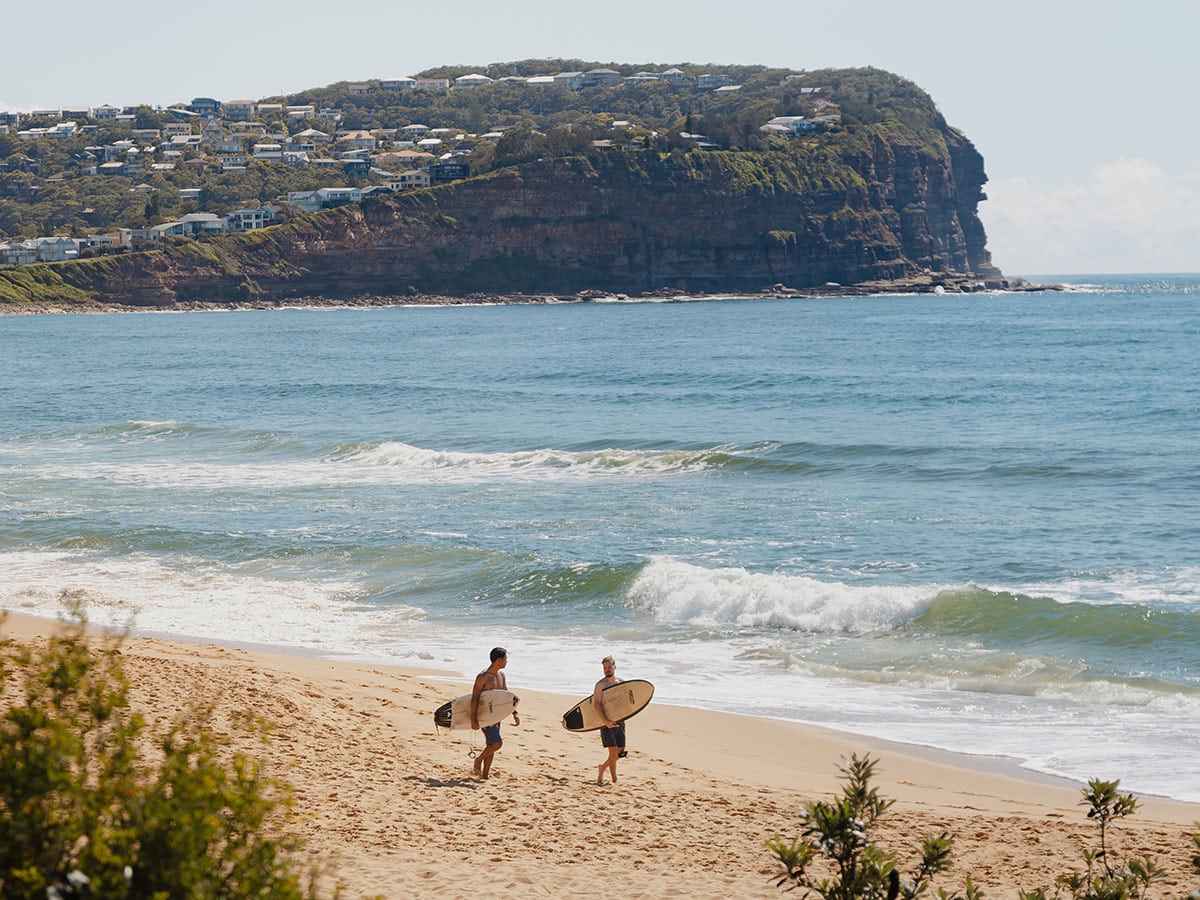
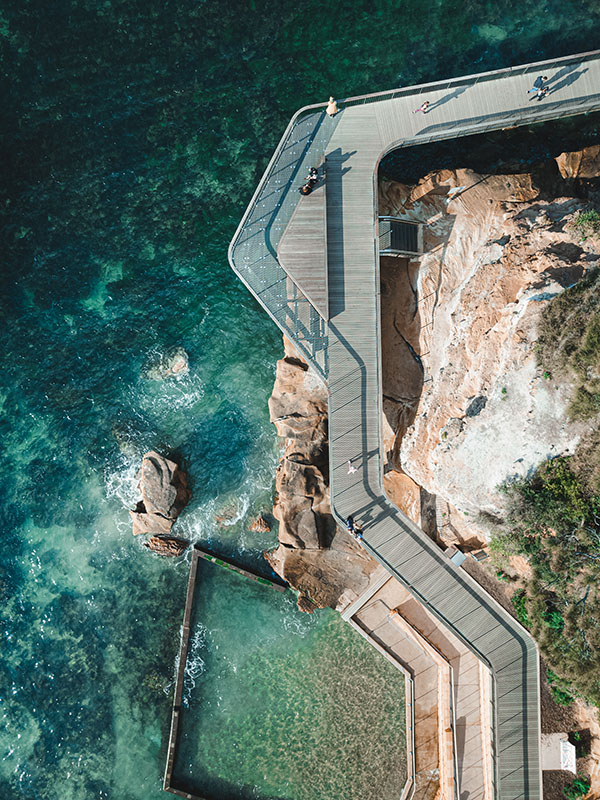
Take in the views from the scenic Terrigal Boardwalk and appreciate the beauty of your surrounding. (Image: From Above Images)
Nestled between Sydney and Newcastle, the Central Coast is a slice of paradise teeming with scenic beauty and rich biodiversity. Spanning 87 glorious kilometres of coastline, more than half the region’s diverse landscape is made up of natural spaces, dotted with thousands of registered Indigenous cultural sites. As a monumental step towards protecting these natural and cultural assets for future generations, the Central Coast has been named an accredited ECO Destination by Ecotourism Australia, supported by WWF-Australia.
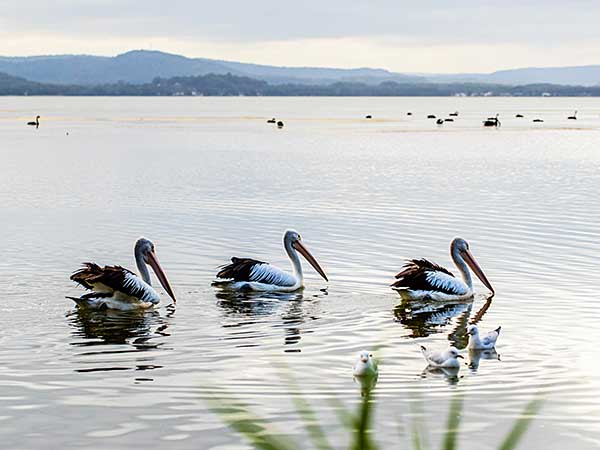
Pelicans are a common sight on the flourishing lakes, waterways and beaches of the Central Coast. (Image: Nikki To)
The lay of the land on the Central Coast is skewed in nature’s way, a diverse map comprising national parks, state forests, bushland, nature reserves, beaches and waterways. It’s a landscape worth showcasing, and, more importantly, one worth protecting. And the region has been recognised for doing just that, as Ecotourism Australia has certified the Central Coast as one of only four ECO Destinations in the country. The area was awarded the title for its commitment to sustainable practices and high-quality nature-based tourism experiences. The local businesses tread lightly on the natural environment, while playing a pivotal role in helping to preserve the oldest living culture in the world.
It’s a destination-wide goal to protect the region’s natural and cultural assets, with initiatives coming from across the community and the local council. The latter has shown its commitment to conservation efforts through programs such as protecting the endangered little tern, conducting surveys of koala populations, and introducing at-home smart plastic recycling.
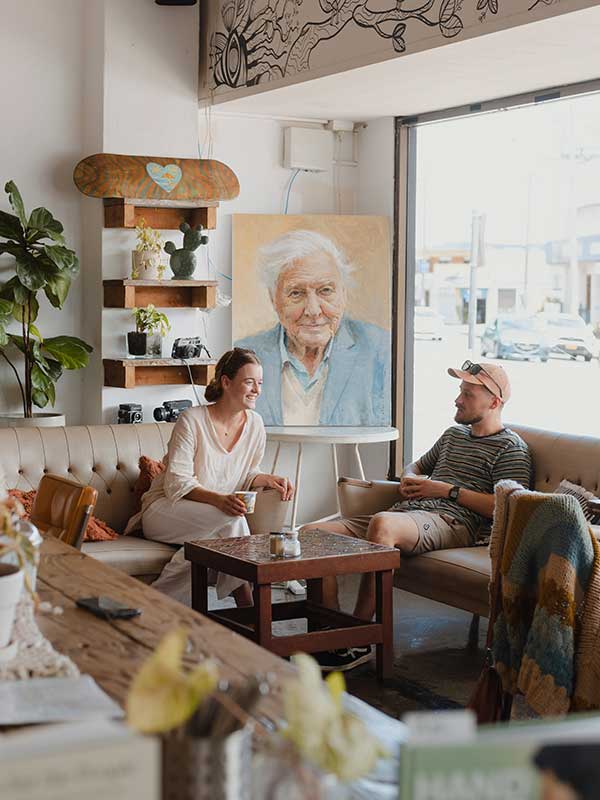
More than 30 Central Coast eateries are using recyclable and reusable coffee cups. (Image: James Vodicka)
Individual business owners are also waving the green flag for sustainability. Good coffee comes with a good conscience, thanks to a group of 30 plus local cafe owners who are collectively committed to using recyclable and reusable coffee cups (especially useful for travellers who leave theirs at home). Many nature-based tourism operators are also working to reduce their impact on the environment, with some even rewilding land for native species.
Some local businesses have gone a step further and have pursued their own ECO accreditation, making it easier to be a conscious traveller. There are currently seven ECO Certified tourism operators across the region, with eight others going through the journey.
Here are 11 of the ways you can have a guilt-free getaway on the Central Coast.
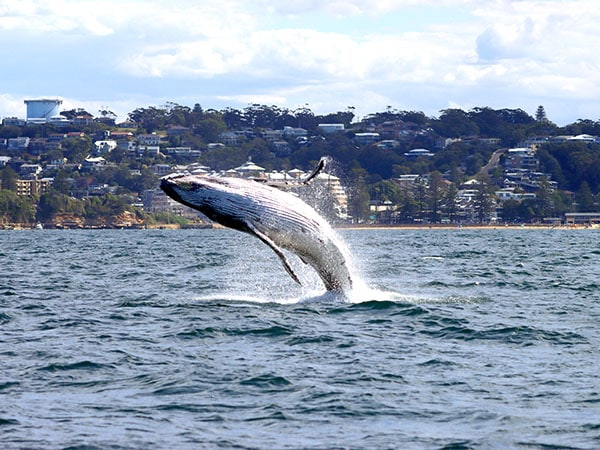
See majestic marine creatures up close with Terrigal Ocean Tours.
Join a marine biologist to spot dolpins, seals, little penguins and humpbacks with Terrigal Ocean Tours. The ECO Certified company contributes to the protection of our oceans in many ways, including conducting water sampling, searching for and monitoring rare species of coral, and releasing rehabilitated seabirds for Australian Seabird Rescue.
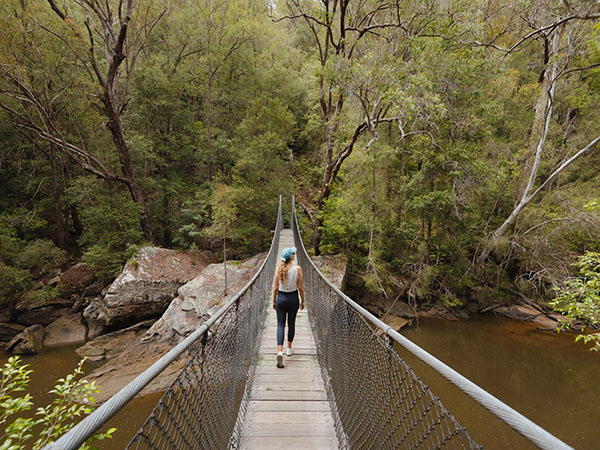
Visit and explore their beautiful, well-managed sites including forest adventures.
This experience will have an impact on your adrenaline but not so much the environment. Located in Ourimbah State Forest, ECO Certified Treetops Adventure comprises rope courses, ziplines and the suspended nets of NetWorld (where you can bounce and play in the trees). It’s been constructed in a way that allows the forest around it to continue to grow.
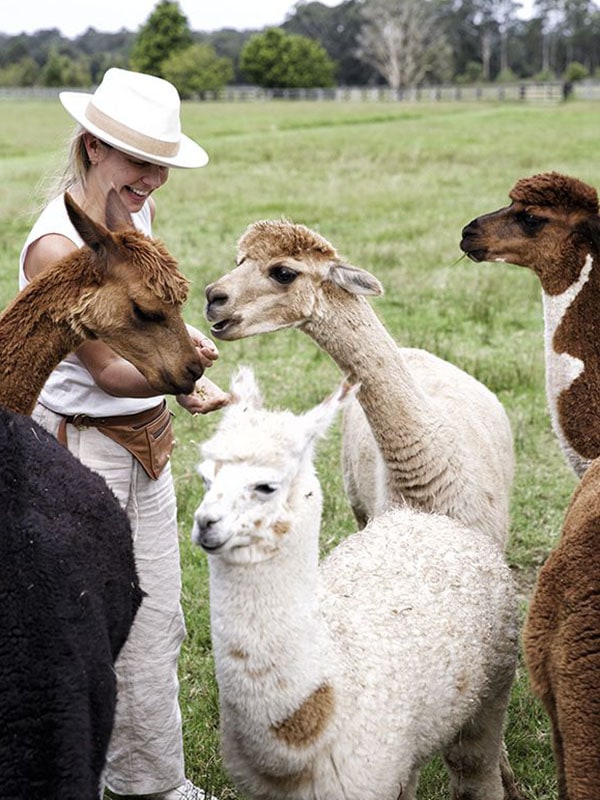
Guests have the opportunity to experience life on the farm and get to know the animals.
Enjoy your bacon and eggs with some new fluffy friends at Iris Lodge Alpacas, an ECO Certified farm in Jilliby, in the Central Coast hinterland. Home to 70 alpacas and four llamas (as well as sheep, cows and horses), the farm was once grazing land but has since been replanted with more than 9000 trees, allowing native local species to return.
Hiring out pedal boats, stand up paddle boards and kayaks so you can explore the bay and inlets of tranquil Avoca Lake, ECO Certified Aquafun Avoca Lake is fun for little and big kids. Relax on the water knowing that your explorations are completely waste free while supporting a family-run business that’s involved in great sustainability initiatives, including Clean Up Australia Day each year.
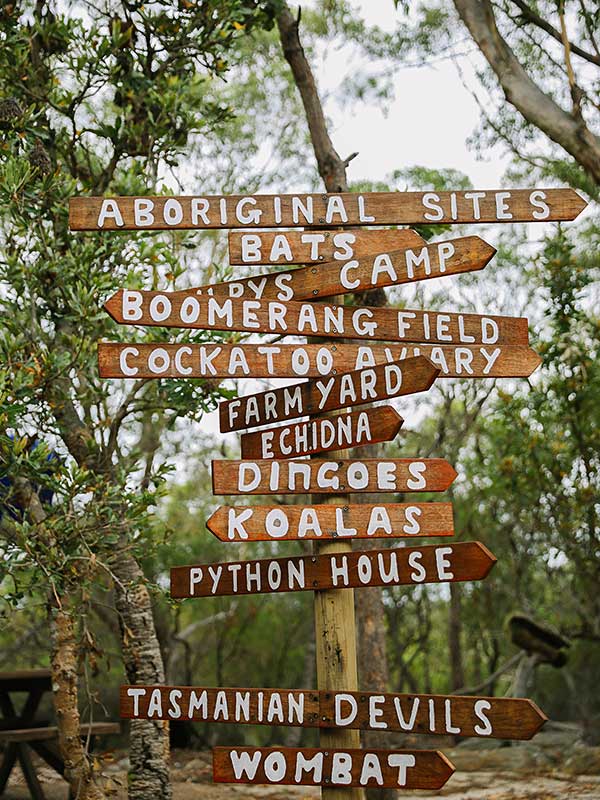
Find your way around the Australia Walkabout Wildlife Park.
Located at Calga, Australia Walkabout Wildlife Park is a sanctuary for native animals including the Tassie devil, koala and wombat, and also runs a breeding program for endangered species. Visitors can learn about wildlife and environmental conservation, and also connect with Country through Indigenous cultural activities and learning about bush medicine basics.
Is there such a thing as chores kids will love? At Grace Springs Farm, yes! The morning chores tour is a hit with families, giving small children the chance to tend to the chooks, ducks, pigs and cows, as well as letting them see where their food comes from.
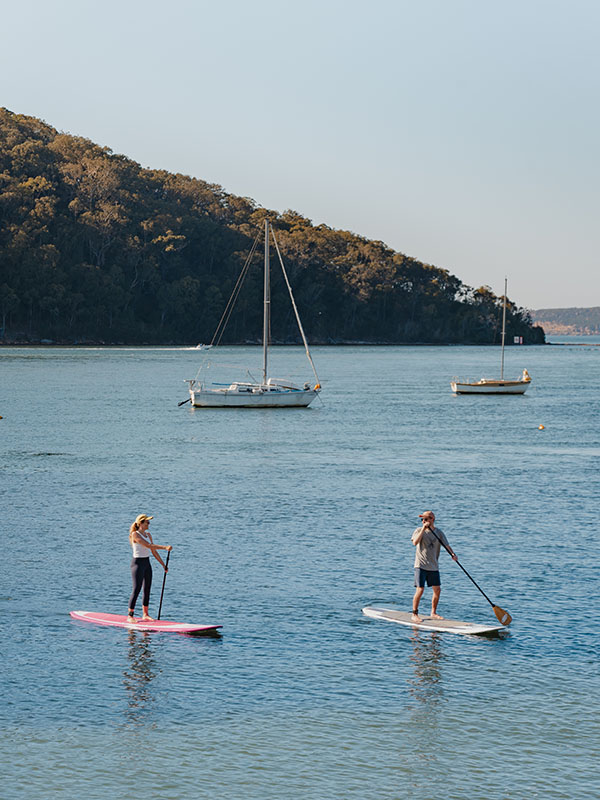
Enjoy a stand up paddle board adventure with Bombora Ettalong Beach SUP.
Ever done yoga on a stand up paddle board? How about pilates? Or played SUP ball? Bomboara Ettalong Beach SUP offers these one-of-a-kind experiences while treading lightly on the environment (they are currently an ECO applicant). Join a SUP tour or sunrise paddle for incredible views of the Bouddi Peninsula and Bouddi National Park plus visit areas of Broken Bay most visitors will never see..
Literally immerse yourself on a tour with the family-owned and sustainably-run Sydney Oyster Farm Tours in Mooney Mooney. Wearing waders, you’ll stand at an in-water table amongst the oyster leases of the Hawkesbury River to meet the farmers, learn about the evolution of oyster farming, then shuck and taste the goods from the river and surrounding area.
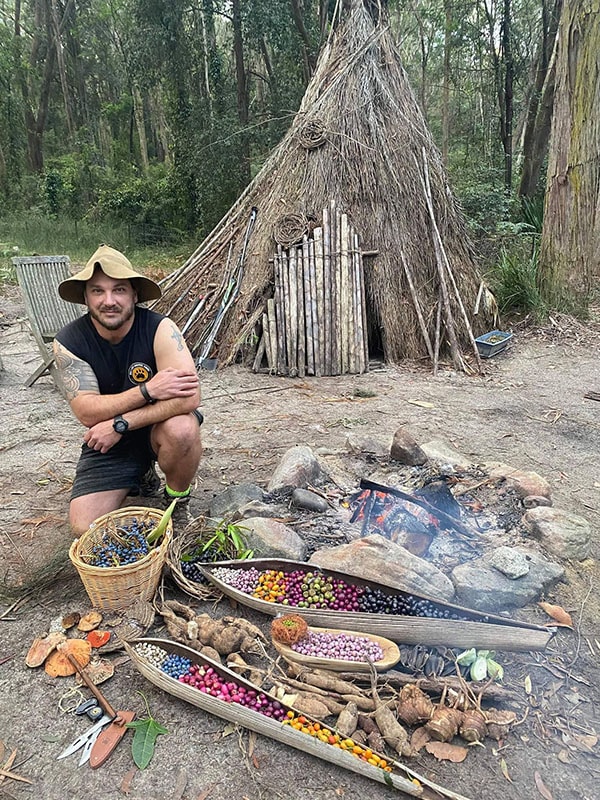
Learn first-hand about bush medicine with Jake Cassar.
Go bush with Jake Cassar Bushcraft Tours to learn about native and edible plants. A renowned bushcraft expert, Cassar really knows his stuff, spending days living off the land to increase his survival knowledge every year. He’s also a youth mentor, animal activist and environmentalist, and has worked with Indigenous elders across Australia.
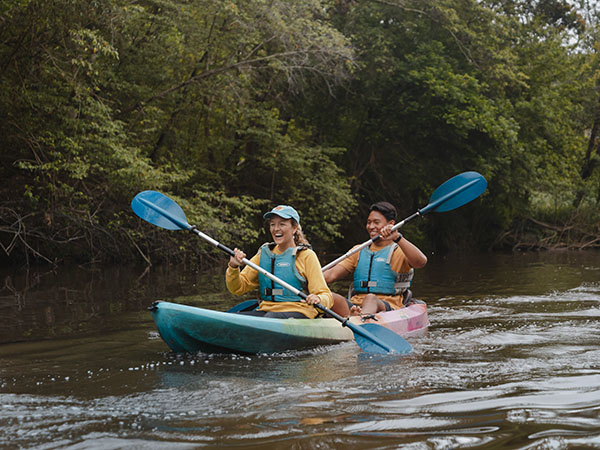
Hire out pedal boats or kayaks so you can explore the scenic hinterland area.
Jump on a quad bike, abseil, kayak or horse ride at Glenworth Valley Outdoor Adventures, located in the Central Coast’s scenic hinterland area. The property also offers eco villas and cabins where you can stay overnight in the wilderness without forgoing creature comforts.
Sleep well at night knowing you’re reducing your footprint at Noonaweena, an ECO Certified stay with national park views in the leafy rural suburb of Kulnura. Made up of four elegant lodges that can accommodate 32 guests, the property is solar-powered and self-sufficient with natural water. It also recycles grey water, composts green waste, and even keeps chickens for eggs and bees for honey.
LEAVE YOUR COMMENT